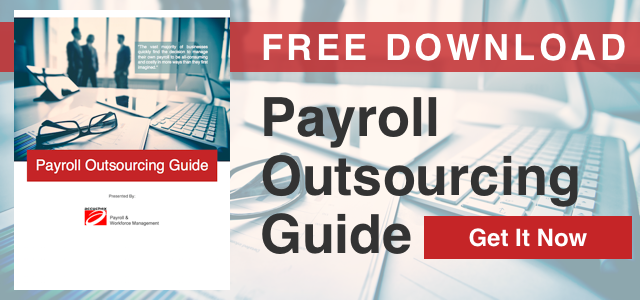 One of the never-ending tasks of California business owners or their personnel and HR managers is staying abreast of California labor laws. It is a task that is made that much more challenging by the sheer volume of new regulations and legislation that is put forth each year. Add to this both the new federal and local laws, and it is easy to see why it can be a full-time task.
One of the never-ending tasks of California business owners or their personnel and HR managers is staying abreast of California labor laws. It is a task that is made that much more challenging by the sheer volume of new regulations and legislation that is put forth each year. Add to this both the new federal and local laws, and it is easy to see why it can be a full-time task.
Staying in Compliance With 2016 California Labor Laws
The risks and potetntial costs of failing to comply with labor laws is apparent to every owner and HR professional. However, the chore of acquiring and understanding the reams of information associated with these various new laws - as well as updates and changes in exisiting laws - can be overwhelming.
But compliance is mandatory.
There are a number of laws, both on the state and federal level, that will impact some, but not all, employers. Then there are those whose regulations will affect all employers throughout California.
California Labor Laws, Federal Labor Laws and You
A brief overview of the labor law topics covered in previous posts follows here:
FUTA Increase for 2015 Tax Year
Reductions in the credit that employers can apply to their federal unemployment tax rate (FUTA) will be effective again for 2015, according to the federal Labor Department’s Office of Unemployment Insurance.
Going into the end of 2015, a number of states will have outstanding loans for five or more years. In addition to a further reduction of the FUTA credit rate, these states are subject to an increase in their actual FUTA rates for 2015 with a tax called the Benefit Cost Rate Add-on Tax (BCR).
Fortunately for California the 1.5% BCR add-on tax was waived for this year because California’s request for a waiver was granted once again.
Consequently, the total rate for California employers for tax year 2015 is 2.1%, for a total of $147 per employee earning taxable wages up to or over $7,000 per year.
Overtime Pay Rules
Another topic of particular concern in regards to California labor laws is overtime rules. Both minimum wage and overtime pay is regulated and mandated at the state and federal levels. As noted in previous posts, the federal rules regarding overtime pay are in the process being changed by the U.S. Department of Labor (DOL)
These proposed changes would more than double the salary threshold for overtime eligibility to $970 a week in 2016. That means employees earning a yearly salary of $50,440 or less automatically would be eligible for overtime pay.
For right now, the threshold is still $455 a week, meaning that a salaried worker making more than $23,660 annually does not automatically qualify for overtime pay under federal standards.
The threshold rules were updated in 2004. According to the Obama administration, that threshold been eroded by inflation. President Obama also is proposing to adjust the salary threshold automatically in the years to come, either by tying it to inflation indexes or by basing it on median wage levels.
Employee Classification
Whether a worker is an employee or an independent contractor generally depends on the application of the factors contained in the California common law of employment and statutory provisions of the California Unemployment Insurance Code - in short referred to as California Labor Laws.
The two state agencies primarily associated with determining the status of independent contractor versus employee, are the Employment Development Department (EDD) - which deals with employment-relatedtaxes - and the Division of Labor Standards Enforcement (DLSE), the agency that determines whether California wage, hour and workers’ compensation insurance laws apply.
Other agencies, such as the Franchise Tax Board (FTB), Division of Workers’ Compensation (DWC), and the Contractors State Licensing Board (CSLB), also have regulations or requirements that apply to independent contractors.
Unsurprisingly perhaps, because different laws may be involved in a particular situation such as a termination of employment, it is possible that the same individual may be considered an employee for purposes of one law and an independent contractor under another law. Therefore, each working relationship should be thoroughly researched and analyzed before classification is established.
Harrassment and Discrimination
- Undocumented Persons. AB 1660 prohibits employers from discriminating against individuals who hold or present a driver’s license issued to undocumented persons under AB 60.
- Immigration. AB 2751 expands unfair immigration-related practices to include threatening or filing a false complaint with any state or federal agency. Current law extended the protection only to reports filed with the police.
- Farm Labor Contractors. SB 1087 prohibits the Labor Commissioner from issuing a “farm labor contractors” (FLC) license to any person who, within the preceding three years 1) has been found to have committed sexual harassment of an employee or 2) has employed a supervisory employee he/she knew or should have known had been found to have sexually harassed an employee.
- Unpaid Interns and Volunteers. AB 1443 prohibits employers from discriminating against individuals in unpaid internships and extends religious belief protections and accommodation requirements to persons in apprenticeships and unpaid internships.
- Medi-Cal Recipients. AB 1792 prohibits employers from: (1) discharging, discriminating, or retaliating against an employee who enrolls in Medi-Cal; (2) refusing to hire a beneficiary of Medi-Cal; or (3) disclosing to any person that an employee receives Medi-Cal, unless authorized by state or federal law.
- Abusive Conduct Training. AB 2053 requires covered employers (those with more than 50 employees) to include a component on the prevention of “abusive conduct” to their mandatory sexual harassment prevention training requirement, beginning January 1, 2015.
Equal Gender Pay
Senate Bill 358, passed on a 39-0 vote as Republicans supported the legislation in a unanimous bipartisan vote what they view as a workplace fairness law that would not unjustly burden employers with litigation.
Gov. Jerry Brown signed the measure, known as the California Fair Pay Act, on October 5, 2015
The legislation, which prohibits employers from retaliating against employees who inquire about coworker pay, also requires employers to show that any difference in pay is related to the job and not some ancillary trait like “a charming personality or impressive golf game.”
Some have speculated on whether this may open the door to additional claims and further litigation.
SSNs, H-2A and H-1B Visa Employees
California, like many other states, has an abundance of employment needs in the agricultural realm. This routinely and seasonally requires employers to look to foreign workers to supplement the available domestic labor pool at certain times each year. For this reason, the federal government created a visa status known as H-2A.
The better known scenario is the H-1B worker. In 2013, according to statistics from the Brookings Institute, San Jose, California ranked number three in the nation with the most H-1B workers. In addition, San Francisco and Los Angeles were running slightly behind with the sixth and seventh highest numbers in the nation. In that year, California boasted the greatest percentage of H-1B workers overall.
A number of questions can come up when HR and payroll professionals are processing the hiring of foreign workers. Chief among these is how to properly handle the built-in requirement of many payroll programs for a Social Security number. It is not uncommon for these legitimate new hires to begin the on-boarding process without having been assigned a SSN. This happens because of delays within the Social Security Administration (SSA) or the Department of Homeland Security (DHS).
According to the SSA website:
When foreign workers apply for Social Security numbers, Social Security verifies their documents directly with the Department of Homeland Security (DHS). Most applications are verified immediately, but there can be delays. Social Security understands that this process may affect companies who hire foreign workers, but direct verification from DHS is vital to ensuring the integrity of the Social Security number.
Affordable Care Act
The Patient Protection and Affordable Care Act (PPACA), or simply the Affordable Care Act (ACA), is the new healthcare reform law. The Affordable Care Act represents the most profound regulatory change to the federal healthcare system in the United States since Medicaid and Medicare.
The Affordable Care Act was signed into law by President Obama on March 23rd of 2010. In fact, the Patient Protection and Affordable Care Act (HR3590) is comprised of the Patient Protection Act and Affordable Health Care for America Act.
Parts of the Affordable Care Act also draw from the healthcare-related sections of the Student Aid and Fiscal Responsibility Act and the Health Care and Education Reconciliation Act. In addition, the Affordable Care Act entails smaller amendments to the Food, Drug and Cosmetics Act as well as the Health and Public Services Act.
Paid Sick Leave
As of September 10th, California became only the second state in the nation to provide paid sick leave with the signing of the Healthy Workplaces, Healthy Families Act of 2014.
- It adds eight new sections to the Labor Code and amends a ninth section, contains detailed recordkeeping and notice requirements, including a new poster requirement, provides penalties for noncompliance.
- The Act applies to all private and public employers regardless of size; small employers are not exempt.
- All employees who have worked in California for 30 or more days within a year from the beginning of their employment will be entitled to paid sick days under the Act.
- Part-time and full-time employees are covered as well as exempt and non-exempt employees.
- The new law requires employers to provide paid sick leave to any employee who worked in California for 30 days at an accrual rate of one hour for every 30 hours worked
Minimum Wage
On September 25, 2013, the California Legislature enacted legislation (AB10) signed by the Governor of California, which raised the minimum wage for all industries. The California Department of Industrial Relations website explains the law's requirements on California employers:
"Although there are some exceptions, almost all employees in California must be paid the minimum wage as required by state law. Effective January 1, 2016, the minimum wage in California is $10.00 per hour. There are some employees who are exempt from the minimum wage law, such as outside salespersons, individuals who are the parent, spouse, or child of the employer, and apprentices regularly indentured under the State Division of Apprenticeship Standards."What California Employers Can Do to Prepare
- Update employee handbooks and your company's policies and procedures to reflect the changes in the labor laws in California.
- Verify and finalize any updates concerning paid sick leave modifications and the basis for compensating similar positions since these can be reviewed as part of an equal pay claim.
- Advise supervisors of the new laws, their responsibility to know them, and their responsibilities for administering policies that conform with all relevant labor laws in California.
- Contact employment counsel with any questions about the new laws.
Accuchex is Here to Help California Employers and HR Managers
If you have questions regarding California labor law requirements, or other HR issues and practices, let us help you in managing your HR needs, payroll processes, and staying on top of compliance demands. Get your Free Download: Payroll Outsourcing Guide to help you make an informed decision or call Accuchex Payroll Management Services at 877-422-2824.


